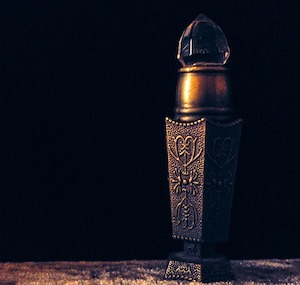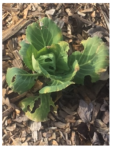 After violently pushing through competing lovers and loves, the Shulamite is finally in a place where she could be close enough to Solomon to be kissed by Him. It’s all she wants. She knows from experience that His expressions of love bring her joy and satisfaction, more than the best wine can ever do.
After violently pushing through competing lovers and loves, the Shulamite is finally in a place where she could be close enough to Solomon to be kissed by Him. It’s all she wants. She knows from experience that His expressions of love bring her joy and satisfaction, more than the best wine can ever do.
But first, she is instantly overwhelmed with Solomon’s fragrance. It is an anointing cologne that the king wears that is unique to him, made up of costly spices.
She breathes it in deeply, memorizing each of its bold, yet subtle nuances. One of the spices she recognizes is Myrrh. It fills her with emotions. Memories of her father’s death. And memories of King David’s death. Yes, her knowledge of Myrrh was intimate.
Myrrh is a precious resin that seeps out of a certain thorny tree when cut. The name comes from the Hebrew word, “Mor” or “Mar,” meaning “bitter.” But although it is very bitter to taste, it has the quality of being sweetly aromatic when heated by the pulses of the heart warming the skin.
The precious oil also had both preservative and antiseptic qualities, and was commonly used for embalming the dead. And if consumed, could provide relief from pain before death.
So while the beautiful smell of Myrrh spoke of resurrection, and the reward of a “crown of life” – it was so culturally connected to suffering and death – that it was essentially impossible to separate the two truths.
The Shulamite pauses for a brief moment, comprehending the import of her Lover having Myrrh on him. On more than one occasion she had been given a vision of the coming Messiah, who would be the Bridegroom of a unique “Bride,” made up of both male and female, Jew and Gentile. It was a revelation that excited her, even though the understanding of such a miracle was still elusive to her.
King David used to say that he believed some of his sufferings were prophetic of the coming Messiah: being misunderstood and hunted like prey, betrayals from both family and friends, and a broken heart so excruciating that it took him to the edge of death itself. But through it all God was with him, giving him faith that there was a higher purpose.
Was this purpose for His Bride?
The Shulamite shudders. She didn’t know the Messiah’s name yet. She loved Him, though, not having seen Him. To her, Myrrh spoke of a love that would go all the way to death – a love that even surpasses all human love. If that is what the future “anointed King of kings” is all about – she was already wanting to give herself to Him in return.
“The fragrance of your perfume is intoxicating,” she then says to Solomon, “and your name is like anointing oil that’s being poured out.” (1:3a)
The Shulamite then notices the young women(who attend to her and the king)standing near her and giggling. A few of them have their eyes closed, and were breathing in Solomon’s cologne, copying what she was doing, and whispering “Oh, Solomon.”
The Shulamite smiles back. She loves to see her maidens so alive with youthful hopes and dreams, and learning from her the ways of love. Mostly though, she hopes that they someday experience God’s love in such a way, that none of the inevitable disappointments of life, or relationships, will ever shake them.
She gives a quick wink to Solomon. “I’m not surprised that these brides-to-be adore you.” (1:3b)
But her heart instantly grows serious. Unlike these young women who are still immature, the Shulamite knows that Myrrh has two sides to it, and that true intimacy is costly.
Already, she senses the storm clouds of controversy gathering against her.
“Draw me away,” she whispers to the king, “and hurry.” (1:4)
To Be Continued…





3 comments
“and your name is like anointing oil that’s being poured out.” (1:3a)
It’s so unfortunate there aren’t better words than “name” in the English language to convey the original Hebrew word …
Like a word that conveys something like your “essence” or “very being” – his “countenance” … the impression I get from that passage is that Solomon saturated to the point of expressing/oozing the oil of anointing …
Author
That’s true, Jack, and I see the connection you made. It reminds me of the saying, “Your name (or reputation) precedes you.”
“….the Shulamite knows that Myrrh has two sides to it, and that true intimacy is costly.” That’s the thing isn’t it? At first we learn of Christ and are drawn to all He has done for us, but He woos us, loves us, and reveals Himself to us that it no longer becomes about what He can do for us, but that we must be with Him because He is our very life. Any sorrow or persecution that comes as a result of our intimacy with Him becomes nothing as we know true sorrow, true pain, true death is a result of not having known Him at all. This is myrrh. The sweetness of His life, the bitterness of the Cross we now take up.